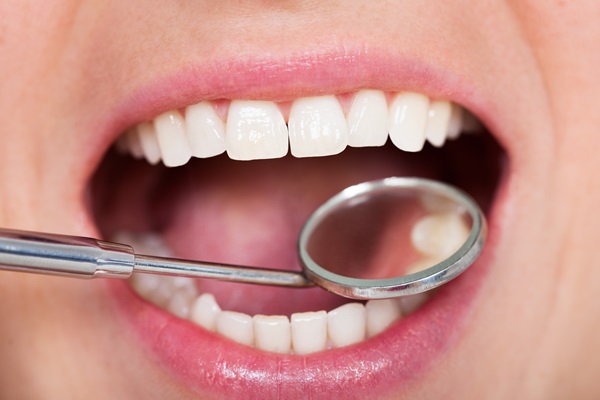Dental Restoration: Learn About Fillings

There are a few great dental restoration options for someone needing to repair teeth that are in bad shape. One of the most popular ones is dental fillings, which can be used to restore and renew teeth that are damaged or decayed. Dentists typically recommend fillings for a patient that requires a minor dental restoration such as a new cavity. For the most part, a severe cavity or infection has to undergo a different type of dental restoration, instead of a dental filling. Ready to find out more?
Fillings as a dental restoration
The following information outlines what fillings are and how they work as a dental restoration. Keep reading to learn more!
What are dental fillings?
Dental fillings are a common type of dental restoration that is typically made of silver amalgam or composite resin. The filling material of choice is literally used to fill a tooth that has an empty cavity in it. Once a tooth has been ridden of any infection, the dentist will use the material of choice and fill the entire tooth to seal it off.
How the procedure works: During a dental filling procedure, the dentist will numb the patient's mouth to ensure that any pain or discomfort is not felt. Once fully numbed, the infected tooth will be drilled into. A dental drill is used to remove any infected areas of the tooth so that it can be restored. Before the dental restoration is complete, the dentist will completely clean the tooth out to ensure that nothing is left behind. Lastly, silver amalgam or composite resin will be used to fill the tooth.
How can a filling restore a tooth?
Fillings are used as dental restorations to remove the infections and restore the tooth back into healthy shape. The dental filling material helps seal the tooth off so that it can go back to being healthy and functioning normally. Once the tooth has healed and is able to function and appear normal, the dental restoration is fully complete.
Making the dental restoration last: Dental fillings, along with other types of dental restorations, require extra care to ensure that they last. There are certain things that dentists can recommend to patients who want to make the most of their dental restoration. Practicing good oral hygiene every day and avoiding certain hard or chewy foods can significantly increase how long the restoration lasts. It is also important to maintain regular dental appointments so that the dentist can check for any indicators that may the filling or other restoration is failing.
Reach out today!
Dental restorations, including fillings, can significantly improve a patient's oral and dental health. Additionally, they can improve functionality and appearance, which can boost confidence and the ability to eat. Any questions or concerns about dental fillings and their use should be addressed by a dentist who specializes in dental restorations. Reach out today to get started or to learn more!
Request an appointment here: https://www.stratusdentalstudio.com or call Stratus Dental Studio at (630) 517-4304 for an appointment in our Carol Stream office.
Check out what others are saying about our dental services on Yelp: Dental Restorations in Carol Stream, IL.
Related Posts
Restorative dentistry is the process of restoring damaged or missing teeth. You have had a form of dental restoration if you have ever had bridges, crowns, or fillings. Dentists want to improve or maintain your smile while preventing future dental complications. Restorative procedures need care and attention to detail. Therefore, only qualified dental professionals should…
Dental bonding is one of the many options for a smile makeover. This treatment is used to address cracked, chipped, or broken teeth. It can also be used for concerns with gaps between teeth, discoloration, or uneven lengths among the teeth. Bonding requires a dental professional, but it is one of the more efficient cosmetic…
Many people believe that the appearance of their teeth can contribute to how others perceive them in social and professional settings. For others, an imperfect smile can lead to oral health and maintenance challenges. If you are not 100% happy with your teeth, you may want to consider a smile makeover. This may consist of one…
Looking for information on preventive dentistry? Read on to learn more. A good preventive dentist can save you money on significant tooth problems, pain, and costly treatments in the future. All treatments or procedures that prevent tooth decay, tooth damage, and gum disease fall under preventive dentistry. Fortunately, when preventive dentistry is incorporated into daily…


